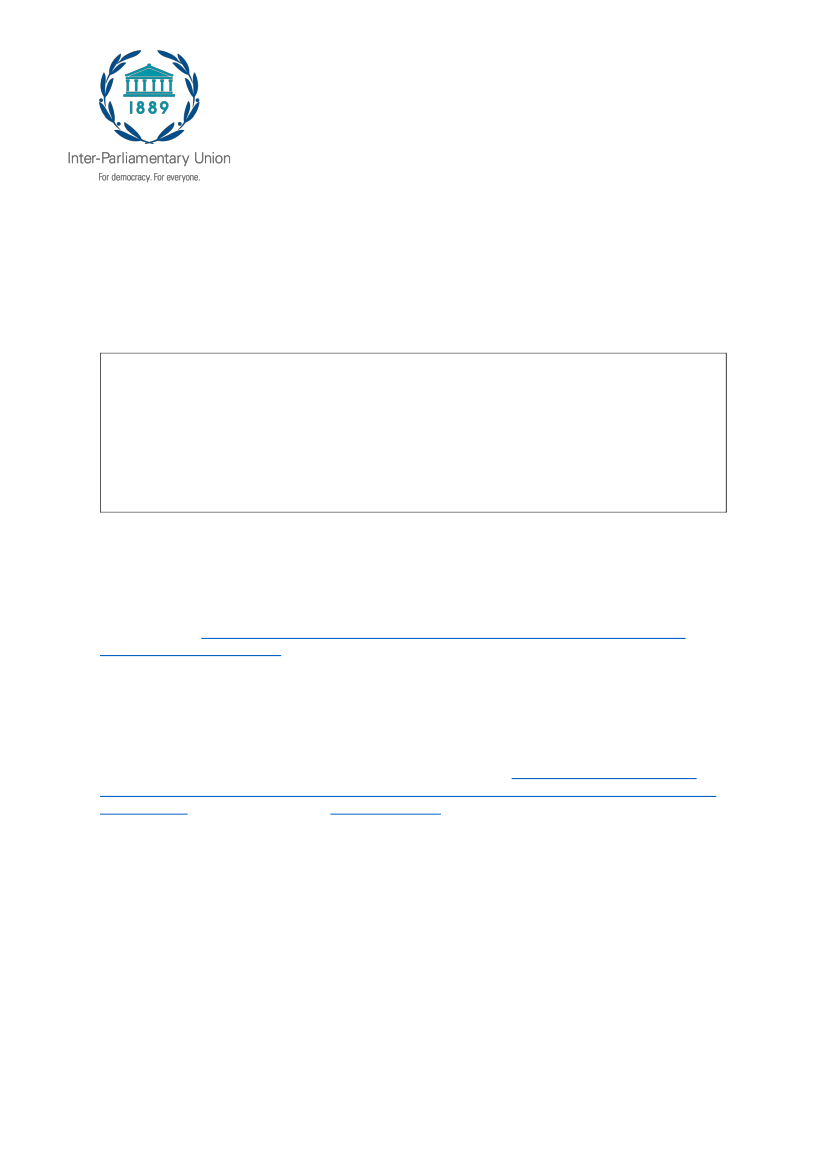
Parliamentary action on universal health coverage in times of
COVID-19
Implementing the IPU resolution
Achieving universal health coverage by 2030: The
role of parliaments in ensuring the right to health
The IPU resolution
Achieving universal health coverage by 2030: The role of parliaments
in ensuring the right to health
was adopted in October 2019 and provides a road map for
parliaments to accelerate progress towards universal health coverage (UHC). This is the
first report on parliamentary action on UHC pursuant to the resolution. It takes stock of
different national experiences and identifies lessons learnt and challenges in the
implementation of the resolution. In the context of the COVID-19 pandemic the report
documents how the pandemic is shaping parliamentary action on UHC. In line with the
IPU’s longstanding engagement on women’s, children’s and adolescents’ health,
particular attention is paid to these groups.
1. Introduction
1.1. Context and background
The resolution
Achieving universal health coverage by 2030: The role of parliaments in
ensuring the right to health
was adopted at the 141st IPU Assembly in October 2019. It is
the first global parliamentary resolution on universal health coverage (UHC) and calls on
parliaments to take specific actions in terms of legislation, budget allocation, accountability
and advocacy to achieve UHC. UHC emphasizes every person’s
right
to have equal access
to quality health services as required, without causing financial hardship.
The UHC resolution was a natural progression, based on the positive impact observed from
the IPU’s work
associated with its 2012 landmark resolution,
Access to health as a basic
right: The role of parliaments in addressing key challenges to securing the health of women
and children,
and the subsequent
2017 addendum.
Parliaments have a vital role to play in
advancing UHC and positive health outcomes, especially during the challenges of a global
pandemic.
The implementation of the UHC resolution requires a special focus on the barriers to
accessing health care and the challenges faced by vulnerable and marginalized groups. It
should be considered jointly with the 2012 IPU resolution and its 2017 addendum. It should
also be noted that reproductive, maternal, newborn and child health is one of the key
indicators for measuring UHC implementation.
Various models or approaches for successfully implementing UHC may be used, provided
there is compliance with the key principles of quality, equity and universal access to needed
health services, and financial risk protection. The determination of health-care financing is
critical for addressing such protection. With a few exceptions (such as Thailand, a
middle-income developing country), publicly funded systems were historically based on
1